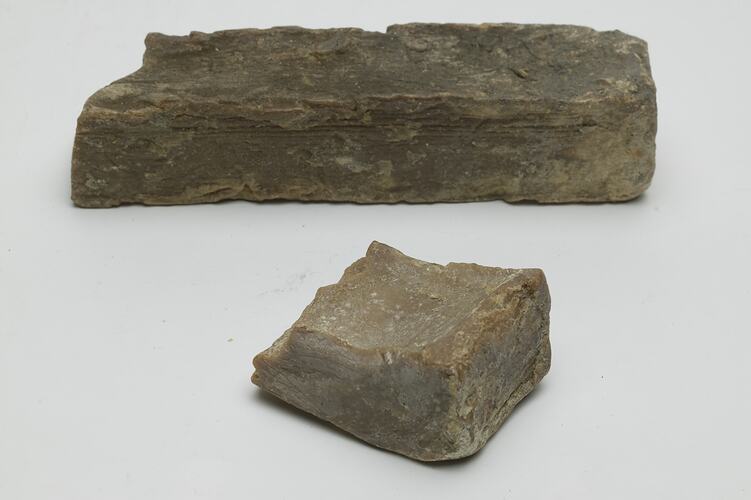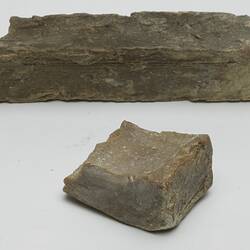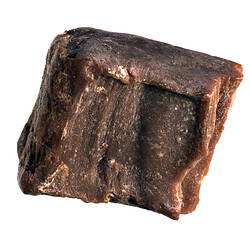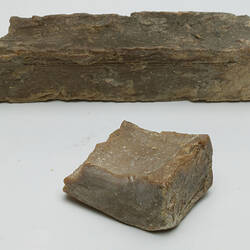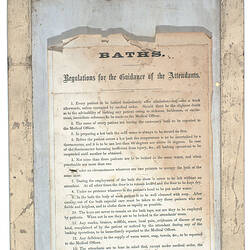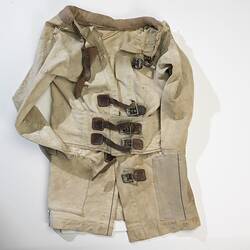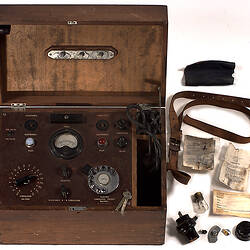Summary
Bars of carbolic soap made and used by patients at Kew Asylum, a mental health hospital in Victoria, Australia, circa 1880. Four patients at Kew were employed to make 84,600 3lb bars of soap per year.
Throughout the second half of the nineteenth century patients in Victorian mental institutions were encouraged to engage in work or occupational therapy as part of a broader approach to the treatment of mental illness known as "moral therapy". Hailing ultimately from the humanist attitudes characteristic of new eighteenth century European philosophies that were emerging alongside such other significant social events as the Revolution in France and the industrialization of British manufacturing, moral therapy was grounded in values of self-improvement and social progress, ideals that were amplified by the abundance of opportunity on offer in colonial gold-rush Victoria. A patient's contribution to the asylum community through their work was regarded as morally fortifying, if not curative, and also had the added advantage of improving the self-sustainability of the institution. Some of the tasks that were regarded as suitable for the patients to undertake included gardening, farming, laundry, embroidery, kitchen work and basic manufacturing.
Physical Description
3 bars and 12 broken pieces of greyish yellow handmade soap. The whole bars are 27 x 4 x 4cm but pieces range down to 3cm in length. Note 87.12 - totally disintegrated.
Significance
This soap is an example of occupational activities undertaken by patients at mental health hospitals in Victoria, Australia, in the late 1800s. It also illustrates the hygiene products used at mental health hospitals in Victoria, Australia.
More Information
-
Collection Names
-
Collecting Areas
-
Acquisition Information
Donation from Kew Mental Hospital (Asylum), Office of Psychiatric Services, May 1985
-
Place & Date Made
Kew Mental Hospital (Asylum), Kew, Greater Melbourne, Victoria, Australia, Circa 1880
-
Place & Date Used
Kew Mental Hospital (Asylum), Kew, Greater Melbourne, Victoria, Australia, Circa 1880
-
Classification
Medicine & health, Mental health - institutional life, Cleaning
-
Category
-
Discipline
-
Type of item
-
Object Measurements
4.3 cm (Length), 2.8 cm (Width), 4.3 cm (Height)
-
Exhibition Collection Management
43 mm (Length), 280 mm (Width), 43 mm (Height)
many pieces of various dimensions; above dimensions refer to largest piece
-
References
Information included in display
-
Keywords
Hospitals, Mental Health, Mental Health Institutions, Psychiatric Services, Making History - Psych Services, Psychiatric Hospitals, Psychiatric Institutions, Soap, Cleaning Products, Occupational Therapy
